International recommendations for gluten sensitivity

Consensus conference of experts for non-celiac gluten sensitivity
Non-Celiac Gluten sensitivity (NCGS) is a new and developing area of great clinical interest and warrants further research.
The evolving clinical area of gluten-related disorders is reported to affect a greater number of people than celiac disease, which has an estimated prevalence of up to 1% of the population (children and adults). In collaboration with world experts the Dr Schär Institute has established a series of consensus conferences where the latest research can be discussed, evaluated and a uniform approach to this emerging field can be formulated.
The proceedings of the conferences are below.
The evolving clinical area of gluten-related disorders is reported to affect a greater number of people than celiac disease, which has an estimated prevalence of up to 1% of the population (children and adults). In collaboration with world experts the Dr Schär Institute has established a series of consensus conferences where the latest research can be discussed, evaluated and a uniform approach to this emerging field can be formulated.
The proceedings of the conferences are below.
Consensus Conference on Gluten Sensitivity 2011
February 11, 2011 could be considered a historic milestone as far as gluten-related disorders are concerned. A team of world experts on these disorders met to clarify an issue that- up to now- is still generating confusion. During the First Consensus Conference on Gluten Sensitivity the history of coeliac disease, dating back 30 years, has been reviewed to define this new entity: gluten sensitivity. The world experts on gluten-related disorders have certified, based on the published scientific evidence, the existence of gluten sensitivity.During the two-day conference, the panel of experts reviewed the existing scientific knowledge. This has allowed them to provide a list of clinical and research priorities. Based on this work we now have a useful map responding to many of the unanswered questions in this field. Furthermore, there are now clear diagnostic and therapeutic criteria for gluten sensitivity. The algorithm below can be used to differentiate the three main categories where gluten reaction is preponderant.
Published Review
Published Review
International Expert Meeting on Gluten Sensitivity 2012
Following on from the first Consensus Conference held in London in 2011, the second International Expert Meeting on Gluten Sensitivity was held in Munich on December 1-2, 2012. Thirty scientists and medical experts from the USA, England, Italy, Germany, France, Spain, Austria, Argentina, Slovenia and the Netherlands spent the weekend discussing the most recent findings in the area of GS.
Some of the questions which came up during the conference were: What is the best definition and nomenclature for GS? What is already known about GS? Which factors still need to be investigated? What biomarkers are suitable for diagnosing GS? What connection might there be between irritable bowel syndrome and GS? The panel of experts also discussed ways to distinguish real GS from a placebo effect caused by a switch to a gluten-free diet. The international event was attended by experts such as Prof. Alessio Fasano, Prof. Carlo Catassi, Prof. Detlef Schuppan, Prof. David Sanders, Dr Michael Schumann, Prof. Wolfgang Holtmeier and Dr Anna Sapone.
The latest results have been summarised in interviews with the experts and a short initial report. The full article was published in 2013 within the journal Nutrients and evaluates the major advances and current trends in knowledge about NCGS presented at this meeting, as well as discussing areas where further research is required.
Published Review
Some of the questions which came up during the conference were: What is the best definition and nomenclature for GS? What is already known about GS? Which factors still need to be investigated? What biomarkers are suitable for diagnosing GS? What connection might there be between irritable bowel syndrome and GS? The panel of experts also discussed ways to distinguish real GS from a placebo effect caused by a switch to a gluten-free diet. The international event was attended by experts such as Prof. Alessio Fasano, Prof. Carlo Catassi, Prof. Detlef Schuppan, Prof. David Sanders, Dr Michael Schumann, Prof. Wolfgang Holtmeier and Dr Anna Sapone.
The latest results have been summarised in interviews with the experts and a short initial report. The full article was published in 2013 within the journal Nutrients and evaluates the major advances and current trends in knowledge about NCGS presented at this meeting, as well as discussing areas where further research is required.
Published Review
Third International Expert Meeting on Non-Celiac Gluten Sensitivity 2014
At the Third International Expert Meeting on Non-Celiac Gluten Sensitivity in Salerno, Italy in October 2014, international healthcare professionals and scientists primarily focused on the diagnosis of gluten/wheat sensitivity. Since there are still no biomarkers with which NCGS can be conclusively diagnosed, standardised dietary procedures are currently the favoured recommended procedure. As part of the expert meeting, a diagnostic guide was developed under the auspices of Prof. Carlo Catassi and Prof. Alessio Fasano. The publication “Diagnosis of Non-Celiac Gluten Sensitivity (NCGS): The Salerno Experts’ Criteria” is the first recommendation that defines a diagnostic protocol model for confirming diagnosis without biomarkers.
New approach to NCGS: Two-phase diagnosis
The outcome of the expert meeting is a NCGS diagnostic protocol consisting of two phases. The first phase involves the unambiguous identification of patients who actually respond to a gluten-free diet. To do this, the patient must first indicate the main symptoms (baseline) and rate them on a scale of one (minor) to ten (major). It is important that the patient follows a diet that contains gluten for at least six weeks before diagnosis. At this point, a gluten-free diet is introduced and the changes recorded for the following six weeks. The response is evaluated individually for each parameter. A typical response is a decrease of at least 30 per cent. Patients who meet the response criteria for at least half of the observation time (more than 30 % reduction in one of the three main symptoms or at least one symptom and no deterioration in any other) are known as responders, i.e. these patients are likely to be affected by NCGS. The second phase is used to confirm the diagnosis. It measures the effect of gluten consumption after a gluten-free diet.
Published Review
New approach to NCGS: Two-phase diagnosis
The outcome of the expert meeting is a NCGS diagnostic protocol consisting of two phases. The first phase involves the unambiguous identification of patients who actually respond to a gluten-free diet. To do this, the patient must first indicate the main symptoms (baseline) and rate them on a scale of one (minor) to ten (major). It is important that the patient follows a diet that contains gluten for at least six weeks before diagnosis. At this point, a gluten-free diet is introduced and the changes recorded for the following six weeks. The response is evaluated individually for each parameter. A typical response is a decrease of at least 30 per cent. Patients who meet the response criteria for at least half of the observation time (more than 30 % reduction in one of the three main symptoms or at least one symptom and no deterioration in any other) are known as responders, i.e. these patients are likely to be affected by NCGS. The second phase is used to confirm the diagnosis. It measures the effect of gluten consumption after a gluten-free diet.
Published Review
Further information on this topic
Videos by Experts
21
Show all
What is the role of the innate and adaptive immune system in NCGS?
Professor Chris Mulder
Head of Department of Gastroenterology
VU University Medical Center
Amsterdam, The Netherlands
At the Expert Meeting 2014 in Salerno, Italy.
Head of Department of Gastroenterology
VU University Medical Center
Amsterdam, The Netherlands
At the Expert Meeting 2014 in Salerno, Italy.
What is the connection between NCGS and IBS?
Professor David Sanders
Consultant Gastroenterologist
Royal Hallamshire Hospital & the University of Sheffield
The United Kingdom
At the Expert Meeting 2014 in Salerno, Italy.
Consultant Gastroenterologist
Royal Hallamshire Hospital & the University of Sheffield
The United Kingdom
At the Expert Meeting 2014 in Salerno, Italy.
Does the survey give any indications on new epidemiological data?
Professor Umberto Volta
Department of Medical and Surgical Siences University of Bologna
Coordinator of Scientific Board of the Italian Celiac Association (A.I.C.)
At the Expert Meeting 2014 in Salerno, Italy.
Department of Medical and Surgical Siences University of Bologna
Coordinator of Scientific Board of the Italian Celiac Association (A.I.C.)
At the Expert Meeting 2014 in Salerno, Italy.
How do nutrition professionals perceive NCGS?
Professor Carlo Catassi
Gastroenterologist Pediatrician
Department of Pediatrics
Università Politecnica delle Marche
60123 Ancona, Italy
At the Expert Meeting 2014 in Salerno, Italy.
Gastroenterologist Pediatrician
Department of Pediatrics
Università Politecnica delle Marche
60123 Ancona, Italy
At the Expert Meeting 2014 in Salerno, Italy.
NCGS: are we moving from a diagnosis of exclusion to a positive diagnosis?
Professor Carlo Catassi
Gastroenterologist Pediatrician
Department of Pediatrics
Università Politecnica delle Marche
60123 Ancona, Italy
At the Expert Meeting 2014 in Salerno, Italy.
Gastroenterologist Pediatrician
Department of Pediatrics
Università Politecnica delle Marche
60123 Ancona, Italy
At the Expert Meeting 2014 in Salerno, Italy.
Non-Coeliac Gluten Sensitivity in Adult & Paediatric Patients
Professor Carlo Catassi
Gastroenterologist Pediatrician
Department of Pediatrics
Università Politecnica delle Marche
60123 Ancona, Italy
At the Expert Meeting 2014 in Salerno, Italy.
Gastroenterologist Pediatrician
Department of Pediatrics
Università Politecnica delle Marche
60123 Ancona, Italy
At the Expert Meeting 2014 in Salerno, Italy.
Is there a relationship between IBS and NCGS?
Reiner Ullrich, MD
Universitätsmedizin Berlin
Campus Benjamin Franklin,
Medizinische Klinik für Gastroenterologie
12203 Berlin, Germany
At the Expert Meeting 2014 in Salerno, Italy
Universitätsmedizin Berlin
Campus Benjamin Franklin,
Medizinische Klinik für Gastroenterologie
12203 Berlin, Germany
At the Expert Meeting 2014 in Salerno, Italy
What role does wheat play in the management of IBS symptoms?
Reiner Ullrich, MD
Universitätsmedizin Berlin
Campus Benjamin Franklin,
Medizinische Klinik für Gastroenterologie
12203 Berlin, Germany
At the Expert Meeting 2014 in Salerno, Italy
Universitätsmedizin Berlin
Campus Benjamin Franklin,
Medizinische Klinik für Gastroenterologie
12203 Berlin, Germany
At the Expert Meeting 2014 in Salerno, Italy
What is the evidence for the duration of a gluten-free diet in IBS patients?
Reiner Ullrich, MD
Universitätsmedizin Berlin
Campus Benjamin Franklin,
Medizinische Klinik für Gastroenterologie
12203 Berlin, Germany
At the Expert Meeting 2014 in Salerno, Italy
Universitätsmedizin Berlin
Campus Benjamin Franklin,
Medizinische Klinik für Gastroenterologie
12203 Berlin, Germany
At the Expert Meeting 2014 in Salerno, Italy
Is there genetic involvement in NCGS?
Reiner Ullrich, MD
Universitätsmedizin Berlin
Campus Benjamin Franklin,
Medizinische Klinik für Gastroenterologie
12203 Berlin, Germany
At the Expert Meeting 2014 in Salerno, Italy
Universitätsmedizin Berlin
Campus Benjamin Franklin,
Medizinische Klinik für Gastroenterologie
12203 Berlin, Germany
At the Expert Meeting 2014 in Salerno, Italy
Does HLA play a role in all gluten-related disorders?
Reiner Ullrich, MD
Universitätsmedizin Berlin
Campus Benjamin Franklin,
Medizinische Klinik für Gastroenterologie
12203 Berlin, Germany
At the Expert Meeting 2014 in Salerno, Italy
Universitätsmedizin Berlin
Campus Benjamin Franklin,
Medizinische Klinik für Gastroenterologie
12203 Berlin, Germany
At the Expert Meeting 2014 in Salerno, Italy
Are we moving from a diagnosis of exclusion to a positive diagnosis?
Reiner Ullrich, MD
Universitätsmedizin Berlin
Campus Benjamin Franklin,
Medizinische Klinik für Gastroenterologie
12203 Berlin, Germany
At the Expert Meeting 2014 in Salerno, Italy
Universitätsmedizin Berlin
Campus Benjamin Franklin,
Medizinische Klinik für Gastroenterologie
12203 Berlin, Germany
At the Expert Meeting 2014 in Salerno, Italy
How does nutritional treatment of wheat allergy & food intolerance differ?
Professor Dr. med. Yurdagül Zopf
Internist, nutritional doctor
Univeristätsklinik Erlangen
91054 Erlangen, Germany
At the Expert Meeting 2014 in Salerno, Italy
Internist, nutritional doctor
Univeristätsklinik Erlangen
91054 Erlangen, Germany
At the Expert Meeting 2014 in Salerno, Italy
What is the influence of a gluten-free diet on microbiota?
Professor Dr. med. Yurdagül Zopf
Internist, nutritional doctor
Univeristätsklinik Erlangen
91054 Erlangen, Germany
At the Expert Meeting 2014 in Salerno, Italy
Internist, nutritional doctor
Univeristätsklinik Erlangen
91054 Erlangen, Germany
At the Expert Meeting 2014 in Salerno, Italy
Is there increasing demand for a gluten-free diet?
Professor Dr. med. Yurdagül Zopf
Internist, nutritional doctor
Univeristätsklinik Erlangen
91054 Erlangen, Germany
At the Expert Meeting 2014 in Salerno, Italy
Internist, nutritional doctor
Univeristätsklinik Erlangen
91054 Erlangen, Germany
At the Expert Meeting 2014 in Salerno, Italy
Gluten Sensitivity: Scientific Research Update
International Expert Meeting on Gluten Sensitivity 2012 in Munich, Germany
Gluten Sensitivity – Definition, Symptoms and Differences to Coeliac Disease
International Expert Meeting on Gluten Sensitivity 2012 in Munich, Germany
What is the prevalence of Gluten Sensitivity?
International Expert Meeting on Gluten Sensitivity 2012 in Munich, Germany
New Insights from the Second Expert Meeting on Gluten Sensitivity
International Expert Meeting on Gluten Sensitivity 2012 in Munich, Germany
Key Messages for Healthcare Professionals on Gluten Sensitivity
International Expert Meeting on Gluten Sensitivity 2012 in Munich, Germany
Management of Gluten Sensitivity: the Role of the Gluten-Free Diet
International Expert Meeting on Gluten Sensitivity 2012 in Munich, Germany
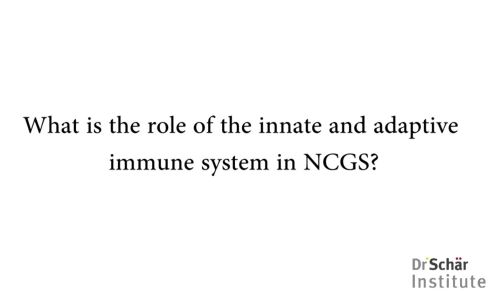
What is the role of the innate and adaptive immune system in NCGS?
Professor Chris Mulder
Head of Department of Gastroenterology
VU Uni...
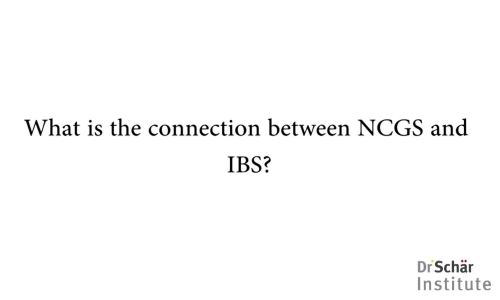
What is the connection between NCGS and IBS?
Professor David Sanders
Consultant Gastroenterologist
Royal Hallamsh...
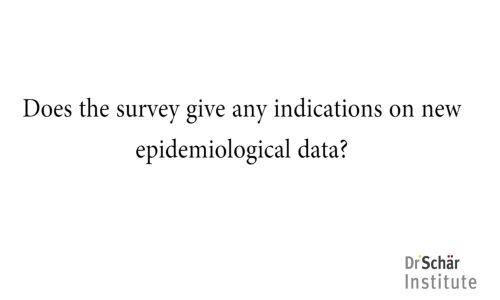
Does the survey give any indications on new epidemiological data?
Professor Umberto Volta
Department of Medical and Surgical Siences Un...
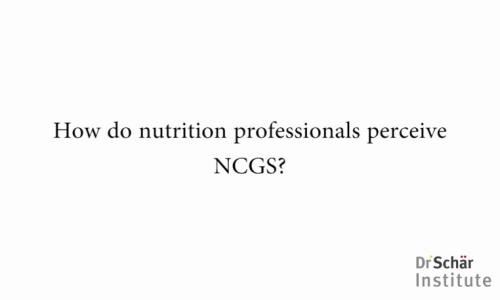
How do nutrition professionals perceive NCGS?
Professor Carlo Catassi
Gastroenterologist Pediatrician
Department o...
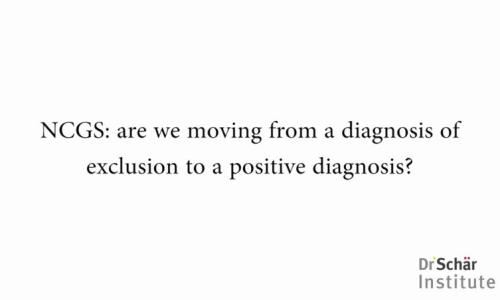
NCGS: are we moving from a diagnosis of exclusion to a positive diagnosis?
Professor Carlo Catassi
Gastroenterologist Pediatrician
Department o...
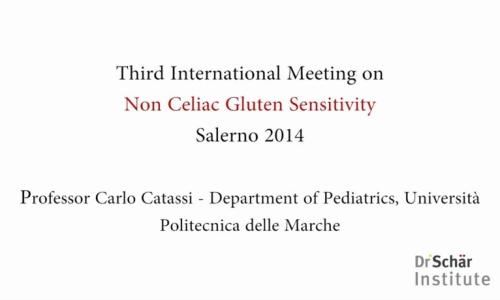
Non-Coeliac Gluten Sensitivity in Adult & Paediatric Patients
Professor Carlo Catassi
Gastroenterologist Pediatrician
Department o...
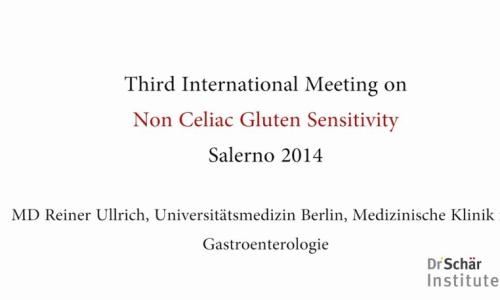
Is there a relationship between IBS and NCGS?
Reiner Ullrich, MD
Universitätsmedizin Berlin
Campus Benjamin Frankl...
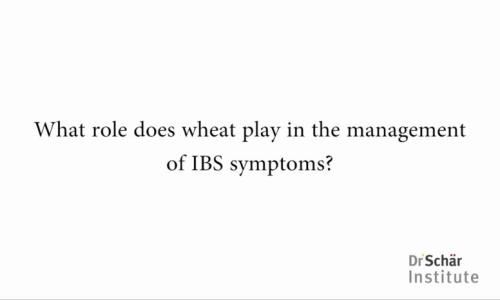
What role does wheat play in the management of IBS symptoms?
Reiner Ullrich, MD
Universitätsmedizin Berlin
Campus Benjamin Frankl...
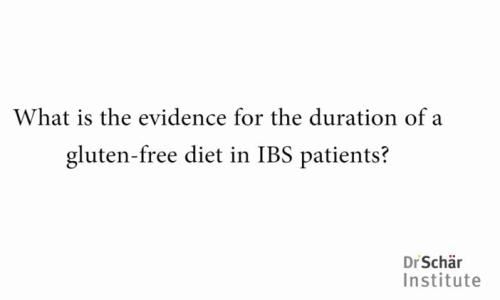
What is the evidence for the duration of a gluten-free diet in IBS patients?
Reiner Ullrich, MD
Universitätsmedizin Berlin
Campus Benjamin Frankl...
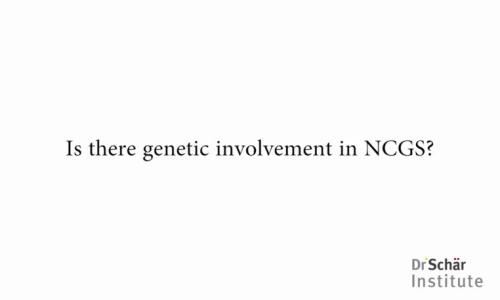
Is there genetic involvement in NCGS?
Reiner Ullrich, MD
Universitätsmedizin Berlin
Campus Benjamin Frankl...
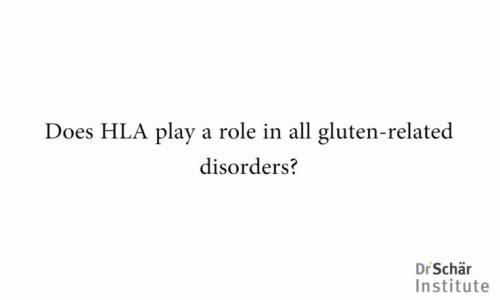
Does HLA play a role in all gluten-related disorders?
Reiner Ullrich, MD
Universitätsmedizin Berlin
Campus Benjamin Frankl...
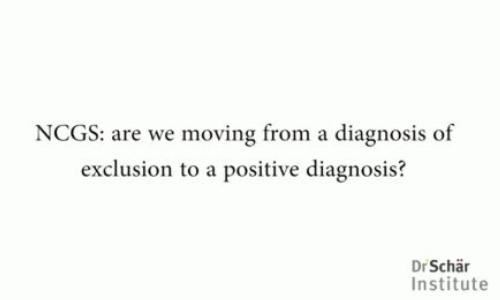
Are we moving from a diagnosis of exclusion to a positive diagnosis?
Reiner Ullrich, MD
Universitätsmedizin Berlin
Campus Benjamin Frankl...
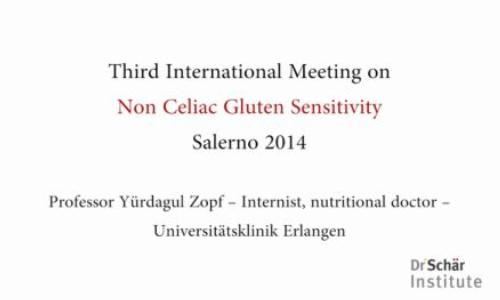
How does nutritional treatment of wheat allergy & food intolerance differ?
Professor Dr. med. Yurdagül Zopf
Internist, nutritional doctor
Unive...
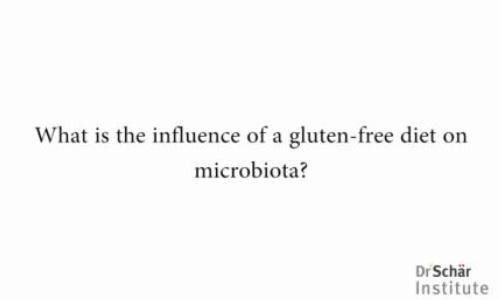
What is the influence of a gluten-free diet on microbiota?
Professor Dr. med. Yurdagül Zopf
Internist, nutritional doctor
Unive...

Is there increasing demand for a gluten-free diet?
Professor Dr. med. Yurdagül Zopf
Internist, nutritional doctor
Unive...
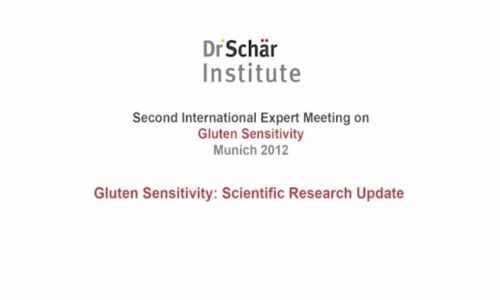
Gluten Sensitivity: Scientific Research Update
International Expert Meeting on Gluten Sensitivity 2012 in Munich, Ger...
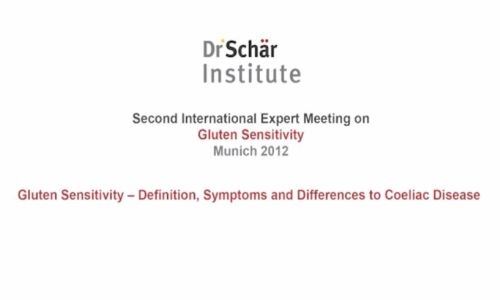
Gluten Sensitivity – Definition, Symptoms and Differences to Coeliac Disease
International Expert Meeting on Gluten Sensitivity 2012 in Munich, Ger...
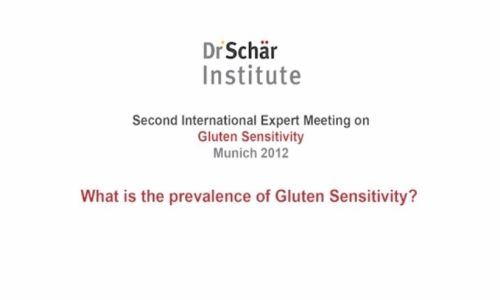
What is the prevalence of Gluten Sensitivity?
International Expert Meeting on Gluten Sensitivity 2012 in Munich, Ger...
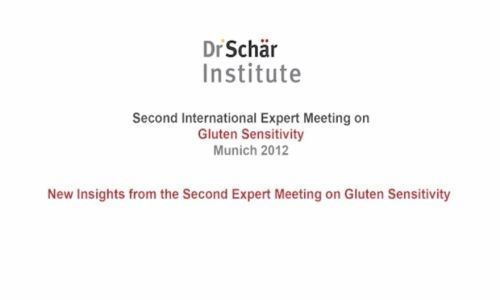
New Insights from the Second Expert Meeting on Gluten Sensitivity
International Expert Meeting on Gluten Sensitivity 2012 in Munich, Ger...

Key Messages for Healthcare Professionals on Gluten Sensitivity
International Expert Meeting on Gluten Sensitivity 2012 in Munich, Ger...

Management of Gluten Sensitivity: the Role of the Gluten-Free Diet
International Expert Meeting on Gluten Sensitivity 2012 in Munich, Ger...
www.drschaer-institute.com
